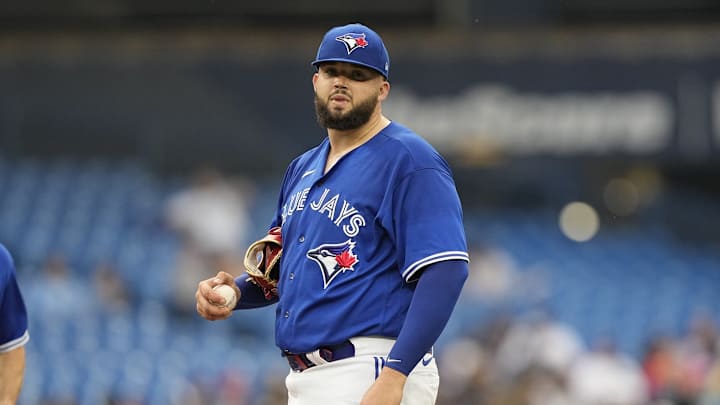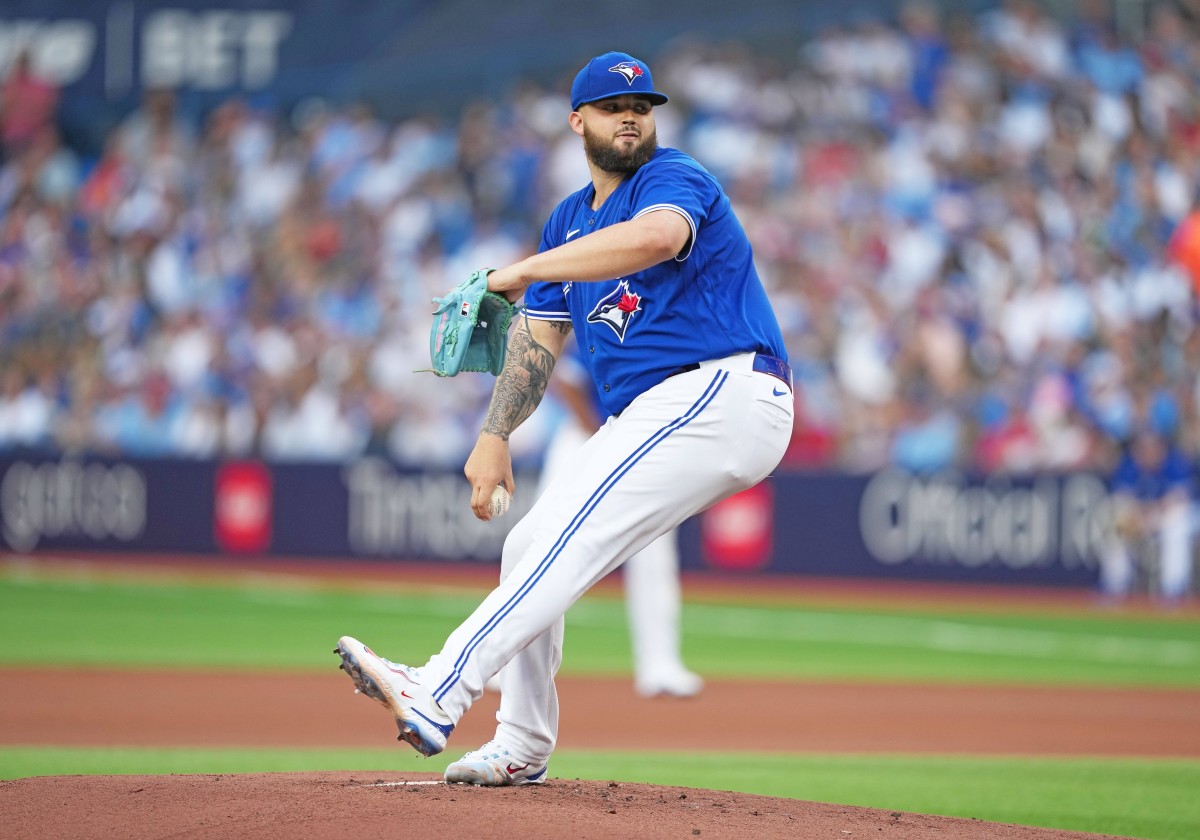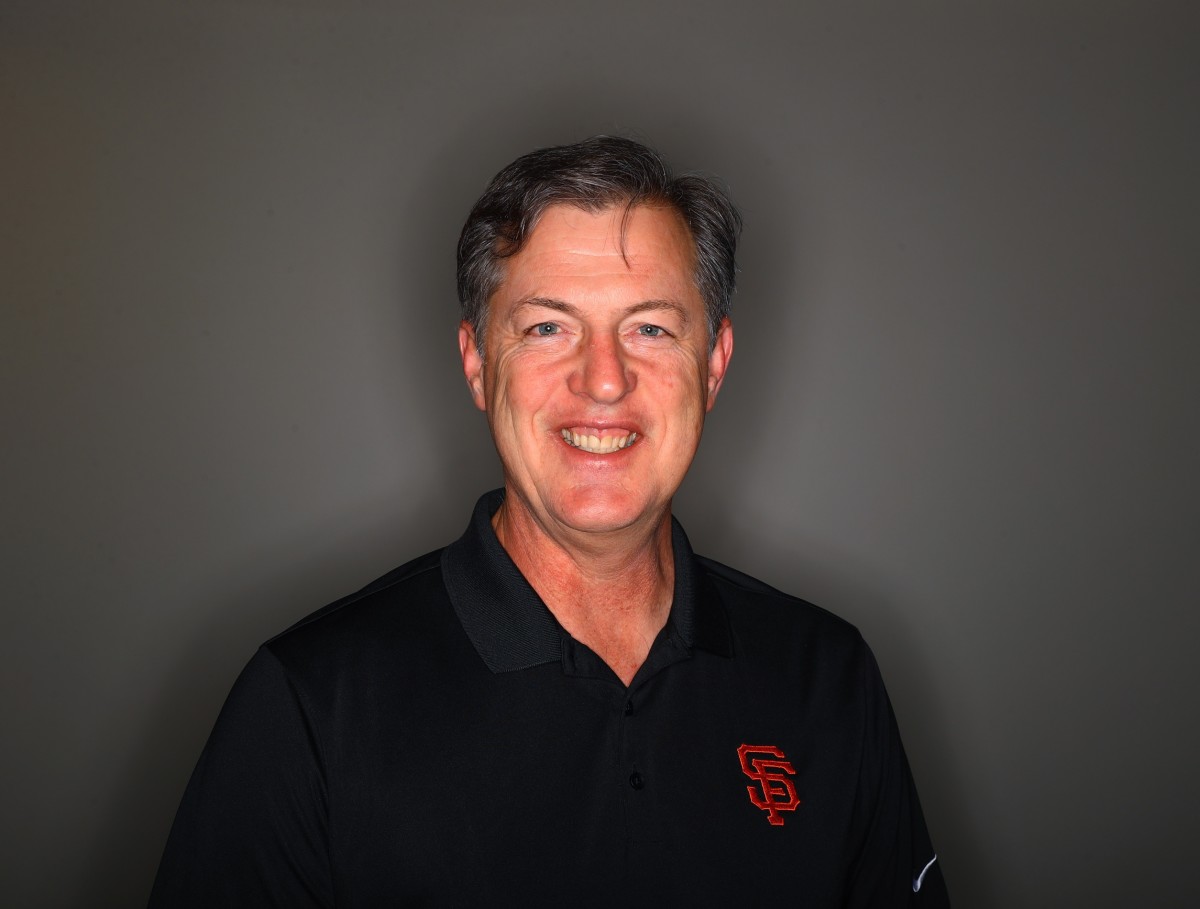How Sports Psychologists Would Fix Blue Jays' Alek Manoah

Alek Manoah is trending in the right direction.
The Blue Jays right-hander, whom the club optioned to the minors following a 6.36 ERA in 13 starts, thrived in his most recent outing. Manoah carved opposing hitters with the Double-A New Hampshire Fisher Cats on Sunday, pitching five innings, allowing only one run on three hits, and striking out 10.
Most importantly, the 25-year-old’s command looked much tighter. Control was the biggest issue for Manoah this season. At the time of his demotion, he was walking 6.5 BB/9, by far the worst mark among qualified starting pitchers.
Alek Manoah's start with Double-A New Hampshire is done. He pitched very well.
— Ethan Diamandas (@EthanDiamandas) July 3, 2023
5 IP, 3 H, 1 ER, 10 K, 3 BB on 82 pitches.
Topped out at 95 mph. Fastball placement was quite good, minus a few yanks. Slider less sharp but didn't get him in trouble. #BlueJays
So, as Manoah finally made some positive strides, I reached out to two prominent mental performance coaches. They shared their insights on what Manoah might be going through and how they would help him get back on track.
How did Manoah get so low?
After each start at the major-league level, the media speaks with the starting pitcher. As Manoah’s ugly outings went on, his demeanor changed. He became more emotional. On June 6, Manoah said the toughest part of his struggles was "letting my teammates down."
Dr. Patrick Cohn, the founder of Peak Performance Sports, specializes in helping athletes, specifically golfers and ball players, manage pressure and take their practice game to competition. He said it’s common for struggling players to feel guilty, as Manoah did.
"A lot of this is driven by fear of embarrassment, fear of letting down teammates, letting down coaches, letting down fans — what we call social approval in our work," Cohn said. "Essentially, you’re just worrying too much about how people are going to respond."
When a struggling pitcher has a terrible outing or a string of bad outings, everything turns into a game of "mind-reading," Cohn said. By worrying so much about what others think, the athlete speeds into a negative feedback cycle, where he thinks he isn't good enough and that he will fail once more.
Eventually, that cycle becomes self-fulfilling.

The mind-reading is only part of the issue, Cohn said. On May 31, following a rough outing versus the Brewers, Manoah got specific about what he was thinking on the mound.
"The mindset of, 'Don't throw a ball here,' instead of, 'Throw a strike right here,' it's a difference-maker," the Jays starter said. "And right now I'm stuck in, 'Don't throw a ball here.’"
Cohn has a term for that mentality.
"Pitchers, when they’re in that mode, we call it avoidance pitching," said Cohn. "Avoidance pitching is, ‘Don’t spike it. Don’t throw it over the catcher’s head. Don’t walk a batter.’ All of that plays in when you’re struggling. You focus on the don’t, and that accelerates the problem because now you’re trying not to throw a bad pitch."
The first step back? Manage expectations
This is Manoah’s first serious battle with adversity at the big-league level. The former first-round pick was solid in college at West Virginia, then he had just nine minor-league starts before debuting at Yankee Stadium in 2021.
A fast riser, Manoah was fantastic through two seasons with Toronto, earning a nod as a Cy Young finalist in 2022. Then, wham. He’s unusable at the major-league level.
"Often, [players] thrive on that [star status]," Cohn said. "They like that, I think, for the wrong reasons. It is motivating for them to have that star status. And, with that taken away, it’s tough."
As Cohn put it, star players in the midst of struggles go "searching for the magic" to get back on track. Instead, the smarter avenue is to focus on the process (Am I throwing strikes? Do I feel comfortable?) over results.
That’s what the Blue Jays emphasized after Manoah allowed 11 runs in his Florida Complex League debut. The club said Manoah progressed in tempo, velocity, and command, but the lack of ballpark atmosphere dragged him down.
"Change happens from the inside out."
Cohn said he understands the atmosphere issue. After I explained the righty’s bulldog style on the mound, Cohn identified Manoah as a "get-the-crowd-going" sort of player who might benefit from pitching angry. And it’s hard to get all jazzed up on the sticky, hot backfields of the Jays’ Florida complex.
"Without that intensity, it starts to eat away at your mind, the doubt," Cohn said. "Then it makes it harder for him to get up and to get motivated, get intense, get aggressive on the mound."
After Manoah had a good outing in New Hampshire, where the atmosphere is more intense, he’ll need to find new benchmarks to prevent him from chasing the elite status he carried a year ago.
"That's what athletes all want to do is they want to go back to their best performance," said Bob Tewksbury, who pitched 13 years in MLB and now offers mental skills training to high-level athletes. "But he's got a new normal, whatever that is. He's got to find the new normal, and maybe the old one will come back."
Tewksbury has worked with notable MLB players, including Jon Lester, Andrew Miller, and Anthony Rizzo. He said he doesn’t think Manoah is dealing with the yips, a far more serious affliction, but rather a lack of confidence.

Manoah is pitching scared, Tewksbury said, but he’s not dealing with the same psychological obstacles Lester did during his career when he famously couldn’t throw to first on pick-off plays. Manoah's habits aren't that entrenched. That’s good news, and it means the Blue Jays' beloved right-hander will be back this season.
Here’s how Manoah can find success as he strives to get back to the big leagues.
A 'free' mental state — not new mechanics — is the goal
Manoah's assignment to the Blue Jays' pitching facility in Dunedin concerned both Cohn and Tewksbury, who didn't like the idea of the coaching staff potentially trying to change the pitcher's delivery.
"I don’t know if [revamping him] is the solution if he still has fear and overcontrol," said Cohn. "The problem is, if you start changing his mechanics, now you’re thinking about your arm slot, your grip, your release, all that stuff."
Said Tewksbury: "Change happens from the inside out. And that’s where [Manoah] is going to make his change, if and when it happens: from the inside out."
Both mental skills coaches will be pleased to know Manoah’s mechanics looked relatively unchanged during Sunday’s start. He still tossed from the stretch, and his arm action looked the same.
Cohn said he thinks Manoah has gradually worked himself into a cycle where multiple bad outings led to steering and guiding the ball to the plate.
If Cohn were in charge, his new goal would be to get Manoah back into a rhythm he calls "caveman throwing," where a pitcher simply throws without thinking.
"Ultimately, where I want to take him is a place of freedom, back to throwing freely, intuitively, or instinctively," Cohn said.
Both Cohn and Tewsbury compared it to driving a car. After driving for a while, most adults will simply slide into their driver’s seat, stick the key in the ignition, and get on their way. No thought is necessary. Manoah was once at that point in his delivery. He just needs to rediscover that comfortability.
"My goal is to get them back to 90% solid. Nine out of 10 pitches they can locate, they can throw freely, in other words," Cohn said.
Manoah’s issues aren’t insurmountable — Cohn said he’s helped players get past similar struggles. And while Manoah might still need more time to sort out this complex issue, all the pieces are there for him to succeed.
Sunday’s outing in Double-A was a great start. Time to free up his mind and do it again.
